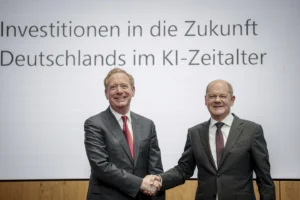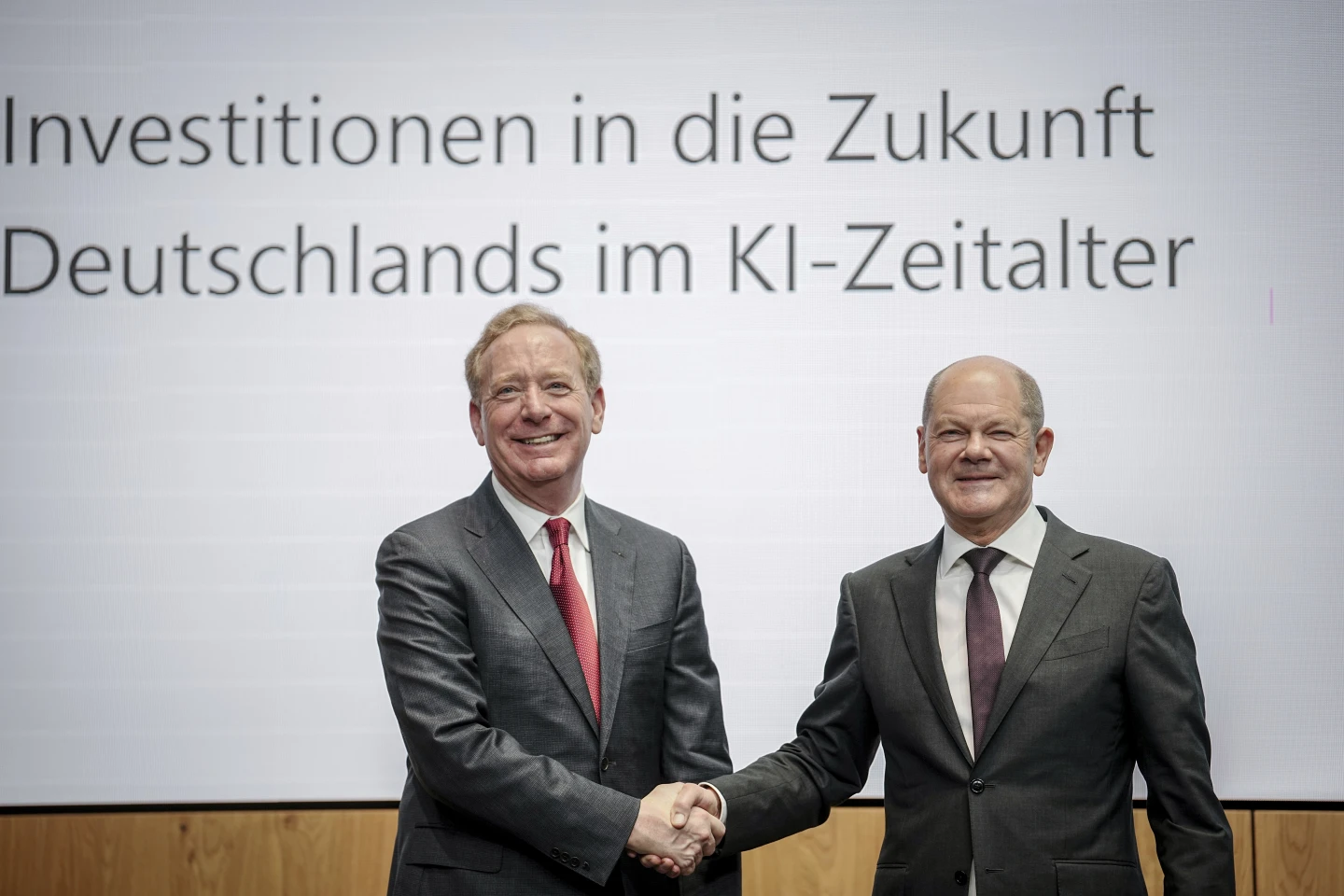Microsoft has unveiled ambitious plans to invest €3.2 billion in Germany over the next two years, with a focus on expanding its data centers and enhancing the digital skills of the workforce to meet the growing demand for AI technologies.
This announcement comes shortly after Microsoft’s commitment of £2.5 billion (€2.9 billion) for AI development in the UK over a three-year period. The new investment aims to double Microsoft’s cloud and AI infrastructure in Germany, with a particular emphasis on bolstering its data center capabilities for cloud and AI applications. Additionally, the company plans to train over 1.2 million individuals in digital skills to support the evolving needs of the digital economy.
Brad Smith, Vice-Chair and President of Microsoft, emphasized the importance of enabling the German economy to leverage AI technologies to maintain its global competitiveness. Industries such as manufacturing, automotive, financial services, pharmaceuticals, life sciences, and medical technology are experiencing significant transformations due to economic shifts, driving the demand for advanced AI solutions.
Smith noted “This marks our single largest investment in our 40 years of operating in Germany, aimed at helping the nation maximize the potential and opportunity of AI. This will double our AI infrastructure and hyperscale cloud capacity in the country and offer digital skills training for more than 1.2 million Germans by the end of 2025.”
Over the next two years, Microsoft will expand its cloud infrastructure in Frankfurt and establish new sites in North Rhine-Westphalia, aiming to enhance Germany’s digital capacity and meet the rising demand for AI services.
German Chancellor Olaf Scholz hailed Microsoft’s investment as a positive development for the country’s business landscape, emphasizing its role in promoting structural changes and strengthening the ecosystem around artificial intelligence.
“This is a really good commitment to progress, to growth, to modernity and to global openness as the basis for these opportunities,” Scholz said.
Microsoft’s focus on AI has propelled its growth, evident in its strong performance in the second fiscal quarter, with substantial revenue and net income growth. The company’s Intelligent Cloud division, which includes Azure, experienced a 20% revenue increase to $25.9 billion. Microsoft’s strategic partnership with OpenAI, the creator of ChatGPT, has further solidified its position as a frontrunner in the AI race, contributing to a $3 trillion valuation in January 2024.

Microsoft has doubled down on artificial intelligence with circa $13b investment in OpenAI, invested between 2019 and now. But its competitors are not waiting. Earlier this year, Meta announced a $37 billion investment in new digital infrastructure, inclusive of AI in 2024.
Google has reportedly invested $30 billion in AI, the most recent being $2 billion into Anthropic, an OpenAI competitor.
The race to develop cutting-edge AI technologies and applications is getting tougher, and is not only driven by the pursuit of technological supremacy but also by the potential to revolutionize industries, reshape consumer experiences, and drive economic growth on a global scale.





